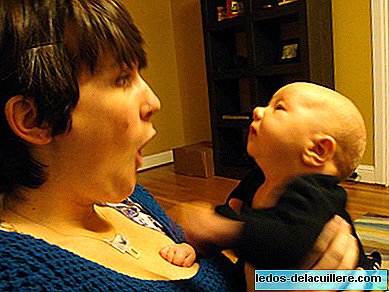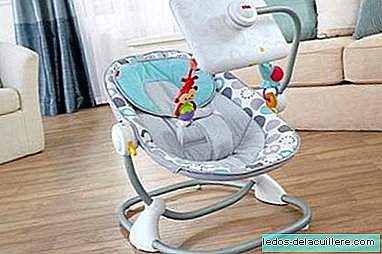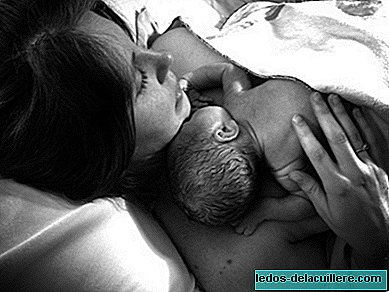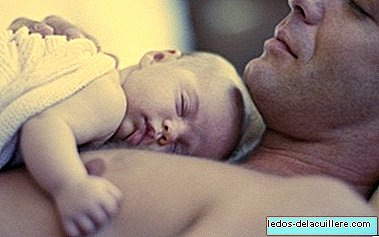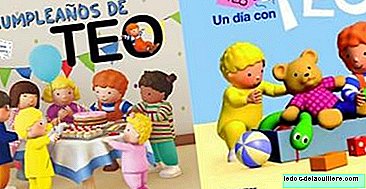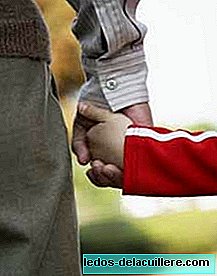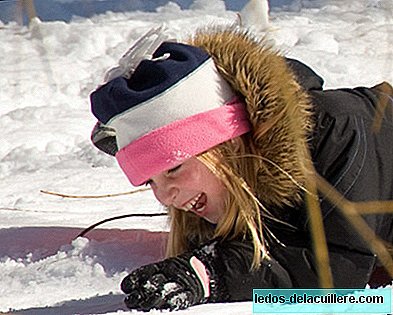
It happens to me very often in my work that to explain to the little ones how we breathe, I turn to that wonderful series of a few years ago called "Once upon a time ... the human body". I tell you how to breathe through the nose, since that is where we have some brushes that clean all the air we drink and only pass the bubbles of oxygen, leaving behind dust or mites among other types of dirt.
And it is very important for our children (and for us too, obviously) that in this season in which the temperatures are still not quite pleasant, especially first thing in the morning, when taking them to school, breathe the nose to avoid health problems. But sometimes it happens that there are children who do not find it so easy to breathe unconsciously through the nose. Therefore, today we will see the relationship between children who breathe through the mouth and cold.
Many children like, when it is cold, to expel air through their mouths to see the "smoke" that comes out or to draw figures on a fogged glass. This is very good, but we must be careful that in doing so they do not get used to taking air through the mouth, since this is not the main function of this part of our body: it corresponds to the nose.
The nose warms, humidifies and cleanses (remember our friends of "Once upon a time ...") the air that passes through it. If the nose is obstructed for any reason, the child will be forced to breathe through the mouth, which will cause air to enter directly through the mouth.
This air taken by the child will be cold, dry and dirty, which will cause the mucous membranes that cover the throat to dry and irritate, causing cough, pain and reducing local defenses, thus favoring infections. It can also produce physiological alterations that can affect physical and psychic development. Thus, when a child breathes with his mouth open (especially while sleeping, although he can also do it during the day) we are facing what is called mouth respirator syndrome.
How to know if my child is a mouth respirator?
It is considered that every child who breathes through the mouth (either continuously or in different situations) is a mouth respirator. This type of breathing may be due to the clogged nose, different vicious habits of the child or the anatomy of the nose. It affects both infants, children and adults, being in large cities where more cases can be found.
The child who takes air through his mouth has some basic characteristics that allow him to easily recognize it. The most frequent symptoms that we can find in these cases are, among others, dry cough (even also at night), respiratory difficulties, obstructive sleep apnea, sinusitis or otitis; they even give postural problems where we see the head tilted back, shoulders tilted forward or chest inward.
But we can not only find this type of peculiarities in children who breathe through their mouths, and that there is an element that is also altered when air is not taken correctly and that many times is not taken into consideration (although it is true that little by little more attention is paid): language.
The fact that the child tilts the head back, adopting an extension position, is an unconscious mechanism to facilitate and increase the air through the mouth. This has an effect on altering the muscular tone of the face, which causes different malformations that generate changes in the morphology of the face and, by extension, in the language.
When a child takes a breath through his mouth, instead of doing it naturally through his nose, different aspects of his anatomy are also altered. influence the correct production of oral language. For example, if the child from a very young age becomes accustomed to performing oral breathing, developmental disorders of the palate (becoming narrow and sunken) and the jaw can occur. Another consequence of being open-mouthed at all times is that the lips lose their tonicity, which could make speech difficult.
Also, the tongue would be in an atypical position, remaining on the floor of the mouth or even between the teeth (which would lead to a malformation in the dental implantation) causing problems to articulate some phonemes, especially the sound / s / which, being in advanced position the tongue, would be replaced by the phoneme / z /. This incorrect position of the tongue, together with the lack of strength of the lips, can also cause eating problems (atypical swallowing)
Finally, we must refer to another aspect that could be altered if oral breathing is prolonged over time: when sleeping with your mouth open, and because of apnea and snoring, you may not be able to get enough rest during the night because to sleep problems (drowsiness during the day, nightmares ...), translating this certain irritability, impulsivity, lack of attention and concentration difficulties, which will affect, and not very favorably, the school performance of the child.

Causes of mouth respirator syndrome
The most common causes that can give a child to take air through the mouth are:
Treatment
It will be the pediatrician who will guide the parents in the follow-up and treatment of their child in the event that he or she is a mouth respirator. The otolaryngologist may also perform a small exam to rule out the existence of tonsil hypertrophy, nasal polyps or any other type of organic problem that makes nasal breathing difficult. The speech therapist also plays an important role in these children, as there may be different dyslalias caused by altered structures that take part in speech. Other professionals who can also benefit the child will be the dentist or orthodontist.
Conclusion
Combining children who breathe through the mouth and cold It can be very devastating for the child since, as we have seen, it not only influences the child's health, but also in aspects such as language, physical development and psychic development. Thus, the fact that a child breathes through the mouth often goes unnoticed and is not given the importance that should be given, since its repercussions are very important in the proper development of our child.
Photos | Tony Fischer Photography and tamadhanaval on Flickr In Babies and more | Most common diseases in winter and how to prevent them, The effects of cold on children's health, Speech disorders: dysglossia, A poorly cured otitis can lead to language problems.


